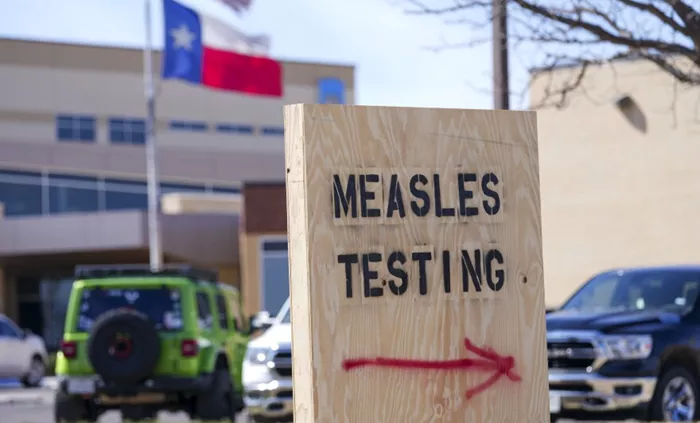The United States has reported over 1,000 measles cases so far this year, with 11 states experiencing active outbreaks. Texas remains the hardest-hit state, accounting for more than 700 cases. Health officials warn that low vaccination rates are helping the virus spread.
1. Texas Leads Nation with 709 Measles Cases
Texas has confirmed 709 measles cases across 29 counties, mostly in West Texas. Two young children who were not vaccinated have died. The majority of cases—over 400—are in Gaines County, where a tight-knit Mennonite community with low vaccination rates has seen rapid virus spread. Health officials say most of the current cases are no longer contagious, but the risk remains.
2. Measles Deaths Reported in Texas and New Mexico
An 8-year-old child died of measles in April in Texas. Another 6-year-old also died earlier in the year. In New Mexico, an unvaccinated adult died in March after not seeking medical help. New Mexico now has 71 confirmed cases, mainly in Lea County, with some cases in nearby counties as well.
3. Cases Also Rise in Oklahoma and Kansas
Oklahoma has reported 14 confirmed and three probable cases. Kansas has seen 48 cases across eight counties, especially in Gray, Haskell, and Stevens counties. One person has been hospitalized in Kansas due to complications.
4. Measles Detected in Michigan, Indiana, and Montana
Michigan has nine confirmed cases, including four in Montcalm County linked to a Canadian outbreak. Indiana has eight cases, all in Allen County, with no connection to other outbreaks. Montana now has eight cases, its first in 35 years, starting in Gallatin County.
5. Ohio, Pennsylvania, and Tennessee Report Growing Numbers
Ohio has 34 confirmed cases, mostly in Ashtabula and Knox counties. Pennsylvania has reported 15 cases, with eight in Erie County alone. Tennessee has six confirmed cases, with at least three believed to be connected.
6. North Dakota Sees First Measles Cases Since 2011
North Dakota has nine measles cases in Williams County. Several children with the virus attended school while infectious, raising concerns about wider spread. Some cases are linked, but others appear to be community-based, suggesting the virus is moving more freely.
7. Outbreaks in North America Share Same Measles Strain
The strain of measles causing outbreaks in the U.S. is the same as that found in Canada and Mexico. Ontario has recorded 1,440 cases, while Chihuahua, Mexico has reported 1,041 cases and one death. The close timing and pattern of spread suggest the virus is moving across borders.
8. Other U.S. States Reporting Cases
While not all states have active outbreaks, isolated cases have appeared in Alaska, Arkansas, California, Colorado, Florida, Georgia, Hawaii, Illinois, Kentucky, Louisiana, Maryland, Minnesota, Missouri, New Jersey, New York, Rhode Island, Vermont, Virginia, and Washington.
9. Why Vaccination Is Key to Prevention
Measles spreads easily through the air when an infected person coughs or sneezes. It is preventable through the MMR (measles, mumps, and rubella) vaccine. Children should get their first dose between 12 and 15 months old and the second dose between 4 and 6 years old.
The CDC says adults can safely get another MMR shot if they’re unsure about their immunity. People born before 1957 or those who had measles as children are usually protected. However, some vaccines used before 1968 may not work well, and those individuals should be re-vaccinated.
Vaccination rates have dropped since the COVID-19 pandemic, with more parents choosing not to vaccinate their children. This makes it easier for the virus to spread, especially in communities where fewer than 95% of people are vaccinated — the threshold for herd immunity.
10. Symptoms and Risks of Measles
Measles often starts with:
- High fever
- Runny nose
- Cough
- Red, watery eyes
A rash usually appears 3–5 days after these symptoms begin. It starts on the face and spreads down the body. Fevers may rise above 104°F at this stage.
Most people recover, but measles can be serious. Complications may include:
- Pneumonia
- Blindness
- Brain swelling
- Death
Young children, pregnant women, and people with weakened immune systems are at higher risk.
Related topics:
- FDA Approves Safer Natural Food Colors From Algae, Minerals, And Flowers
- Government Pulls Funding For Life-Saving Baby Heart Device
- Massive Cuts to U.S. Workplace Safety Agency Spark Fears of Increased Job Hazards


